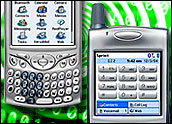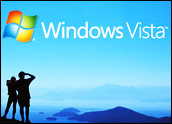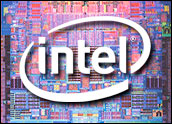
In the competitive world of digital music download services, Ruckus Network upped the ante by announcing it is offering free music downloads to any college student. The Herndon, Va.-based company gets its revenue from selling advertising instead of charging users to download files.
Under the new system, any student with an e-mail address ending in “.edu” will be able to sign on to Ruckus and download songs from a library of more than 2.1 million tracks, the company said. Previously, Ruckus was available only to students at schools that had signed an agreement to be part of the Ruckus network.
However, there are still benefits to colleges that join the network. The company will install Ruckus servers at those colleges and this will ease one of the biggest problems faced by the institutions when it comes to music file downloading by students: bandwidth use.
“The servers will be put on campuses as part of that exclusive agreement, Ruckus spokesperson Andrew Soucy told TechNewsWorld. “That’s one of the benefits of being part of the network.”
Another benefit is that students on colleges that have partnered with Ruckus will be able to get faster downloads, he said. They’ll also gain access to inexpensive video downloads.
A New Approach
Ruckus, which initially asked colleges to pay fees but found few that were interested, changed course last year by making its service free to the schools. It was able to do that by switching to an advertising-based model similar to that used for decades by radio.
“I think this is significant for two reasons,” noted Phil Leigh, president of the Inside Digital Media research company. “One, the illegal, peer-to-peer file sharing, to the extent it remains, is probably most pronounced on college campuses. This is an alternative.”
Additionally, Leigh continued, the Ruckus model is a landmark effort in ad-based Internet music, which he believes to be the way of the future. “This is a way of testing whether the Internet can replace radio,” he declared. “For half a century, radio has been the relied-on way for the recording industry to popularize new releases. But radio is losing its influence. It’s clear that the new way to do this is the Internet.”
Record labels “are afraid to provide too much freedom” to music buyers, fearing “wholesale vandalization of CD sales,” according to Leigh. “Their fear is real,” he added. “They’re trying to test the waters gradually.”
However, the music companies are fighting a losing battle, Leigh claimed. Asked if he is certain advertising-supported Internet music distribution services akin to Ruckus will eventually win that war, Leigh said, “As certain as fleas on a yard-dog. The entire record label business generates about (US)$12 billion in the U.S. and it charges for it. The broadcast industry generates $20 billion and gives it away for free. So, advertising-supported distribution over the Internet is the only way to go.”
Freedom Isn’t Completely Free
Freedom comes with some strings attached, however. The files distributed by Ruckus are playable on students’ personal computers after they download the Ruckus Player, but they can’t be burned, for free, to CDs, they don’t work on Apple iPods and Microsoft’s new Zune player, and they only work on portable MP3 players that are PlaysForSure subscription compatible.
The company doesn’t believe it is competing with Apple or Microsoft, according to Soucy. He says people with those companies’ devices will, in essence, use Ruckus to do music research.
“It’s used in complement to [Apple’s] iTunes,” suggested Soucy. “Typically, people are discovering music on Ruckus before purchasing it from other places.” What happens after graduation? Ruckus will allow graduates to stay on as members, but it will cost about $9 per month.





















































